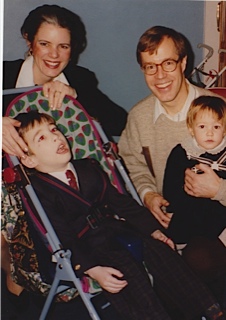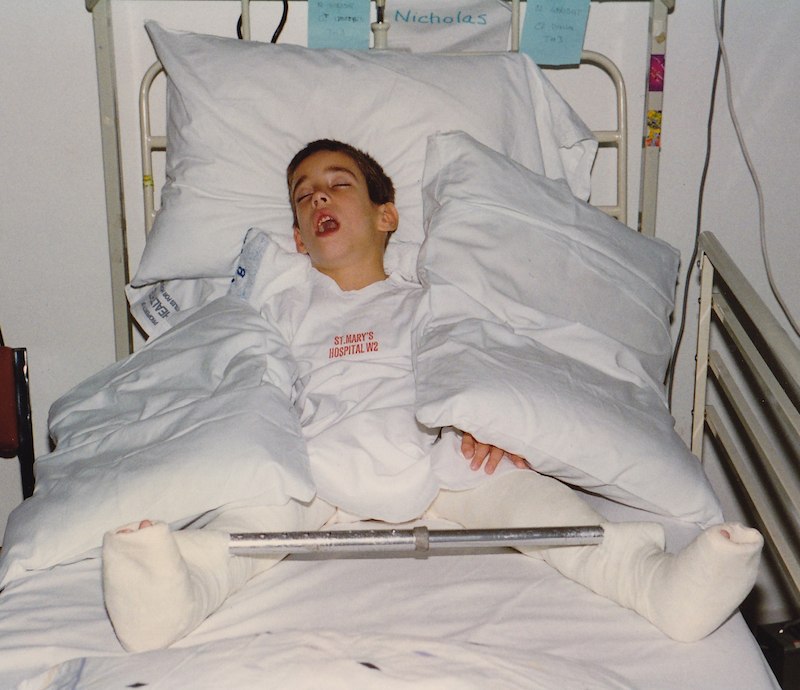In times of hardship or pain, looking at the people we love can be powerful medicine. Parents and caregivers need to be on the receiving end of the loving gaze of family and friends too.
Here’s what got me thinking about eye contact: I happened to notice a billboard with a photo of a beautiful but destitute young African woman holding a dangerously thin infant, who was clearly malnourished and distressed. I thought it was so odd that this young mother wasn’t looking at her baby – she was gazing at something in the distance.
Suddenly, I recognized myself in that mother. Our son Nicholas has severe cerebral palsy. When he was young, he suffered from cyclical vomiting syndrome. Every attempt to spoon-feed my boy ended badly and eventually he received the diagnosis of “failure to thrive.” I felt deeply wounded by my inability to nourish my son. Surgeries and time eventually enabled our boy to overcome his gastro woes, but I recall looking away from him in those dark days as I pushed the spoon toward his tiny mouth. I still feel badly about that.
Eye contact is a powerful kind of hand-holding. Sick people need it, people in pain need it and so do caregivers. Eye contact says, “I am with you. You don’t need to experience this alone. What happens to you happens to me, too.”
When Nicholas was 12, his hip dislocated and the orthopedic surgeon recommended a major reconstructive procedure. Transfusions would be necessary due to blood loss – the surgery sounded invasive and frightening. Nick was listening, holding his breath, wide-eyed. I bent down in front of him and held his hand. I asked him to look at me and I said, “Nicholas, you and I are the same blood type, so I am going to give you my blood for this surgery. My blood will be filled with comfort, with healing and most of all with my love. I will be with you all the time in the hospital to make sure you are fine. I promise.”
Later that day, my best friend arrived at my door. She already knew about the decision and, in our entrance hall, she held my hands and looked straight at me – not for long but enough to say clearly, “You can do this and I will help you.” She smiled and squeezed my hands.
Caregivers look at their charges all the time…scanning for signs of decline, bed sores, fevers or for changes in breathing and function. We are expert observers. But we need friends and family to look at us too. I often say that we cannot do this caring and giving alone. We need companions in our loving work. One powerful way to be a friend of a caregiver to look her in the eye.
Read more: http://themighty.com/2015/06/one-simple-powerful-way-to-support-caregivers/#ixzz3e8NyuOIJ



No comments:
Post a Comment